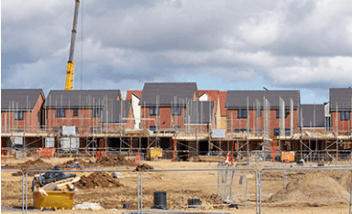In the current low-yield environment, the alternative investment market has experienced considerable growth and is now worth about $15trn. Whilst sovereigns and institutions naturally represent the lion’s share of this sector, there is increasing activity from mass affluent and retail investors globally.
Online platforms have opened the doors for investors to invest directly into institutional grade deals on a fractional basis. This disintermediation enables investors to achieve higher returns, while aligning with professionals who carry out extensive due diligence and oversight on their behalf. The sector is further evolving with leading platforms, such as Shojin, starting to collaborate through such initiatives as AREIP to bring in standardised risk metrics and deeper liquidity, which will enable this sector to move into the mainstream. Today all smart investors are exploring an allocation to this part of the market.
Fractionalisation is a game changer for mainstream property investing
We all know that the big money in real estate is made during the development stage, however this is a very difficult area for most people to invest in. Whilst very profitable, investing in real estate development carries many risks and requires significant expertise to carry out the appropriate level of due diligence, which is both time-consuming and costly. Get it right however, and you could enjoy very strong returns on investment.
For far too long, real estate investment was the preserve of the super-rich. The best we mere mortals could wish for was a buy-to-let investment. Given the government clampdown in this space, between higher taxation and tougher regulations, this is no longer as attractive as it once was. While rental yields have come down, returns on real estate development have remained strong.
The UK is facing a crisis with a shortage of housing, and the ones to bring us out of it are small and mid-sized developers who can deliver schemes quickly. This is also where the government is helping with its various first-time buyer assistance schemes. However, the same developers face a funding problem. A senior lender may provide 65% of funding, but the remainder has to be contributed by the developer. Developers are like any other business, they need capital to grow and take on larger projects, so this presents a lucrative opportunity for smart investors.
Investment in real estate takes two main forms. An “equity” investor sits alongside the developer in the capital structure, sharing the risks of the project and sharing profits, typically taking home returns of 20%-25% per annum. A “mezzanine” investor sits above equity in the structure, to take a fixed return. Mezzanine carries less risk than equity but can still deliver returns of 14%-16% per annum. Variations of this include a hybrid of the two called “preferred equity”, where you might take a fixed return plus a share of profits.
The biggest barriers to entry for investors into real estate development are money (you need lots of it) and expertise (to do the due diligence), but this is all changing.
20 years ago, it would have been unthinkable to have lots of investors in a single project, the administration would have been too burdensome, which is why only very wealthy people would invest with very large ticket sizes. Now, thanks to online investment technology, aka “crowdfunding” or “peer-to-peer”, platforms have launched to fractionalise these investments, enabling more investors to join and share the returns. However, with so many new platforms springing up, how do you know which platform to invest with?
This brings us to the second barrier, expertise. While many platforms have shot up, not all of them have the skills or expertise in this sector and therefore risk may be underestimated. When you invest with a platform, you want to be sure that they have experience in real estate development and are able to carry out detailed and comprehensive due diligence. However, it should not stop there. A good platform should continue to monitor each project throughout its life, attend all professional team meetings and report back to investors regularly. This is important so that if the project is veering off-track, they can use their expertise to help bring it back on track. A good platform should be confident enough to invest its own money into the scheme and sit in a first-loss position. That means that if something did go wrong, they would lose some money first before investors take any losses. A platform should also be truly aligned with investors’ interests by sharing profits at the end rather than taking hefty upfront transaction fees from investors.
The world of investment is changing
Platforms enable investors to disintermediate traditional asset managers and access deals directly to benefit from enhanced returns. This is the democratisation of investments. There is a golden period of opportunity in real estate development right now, and it is getting the attention of smart investors globally.




















